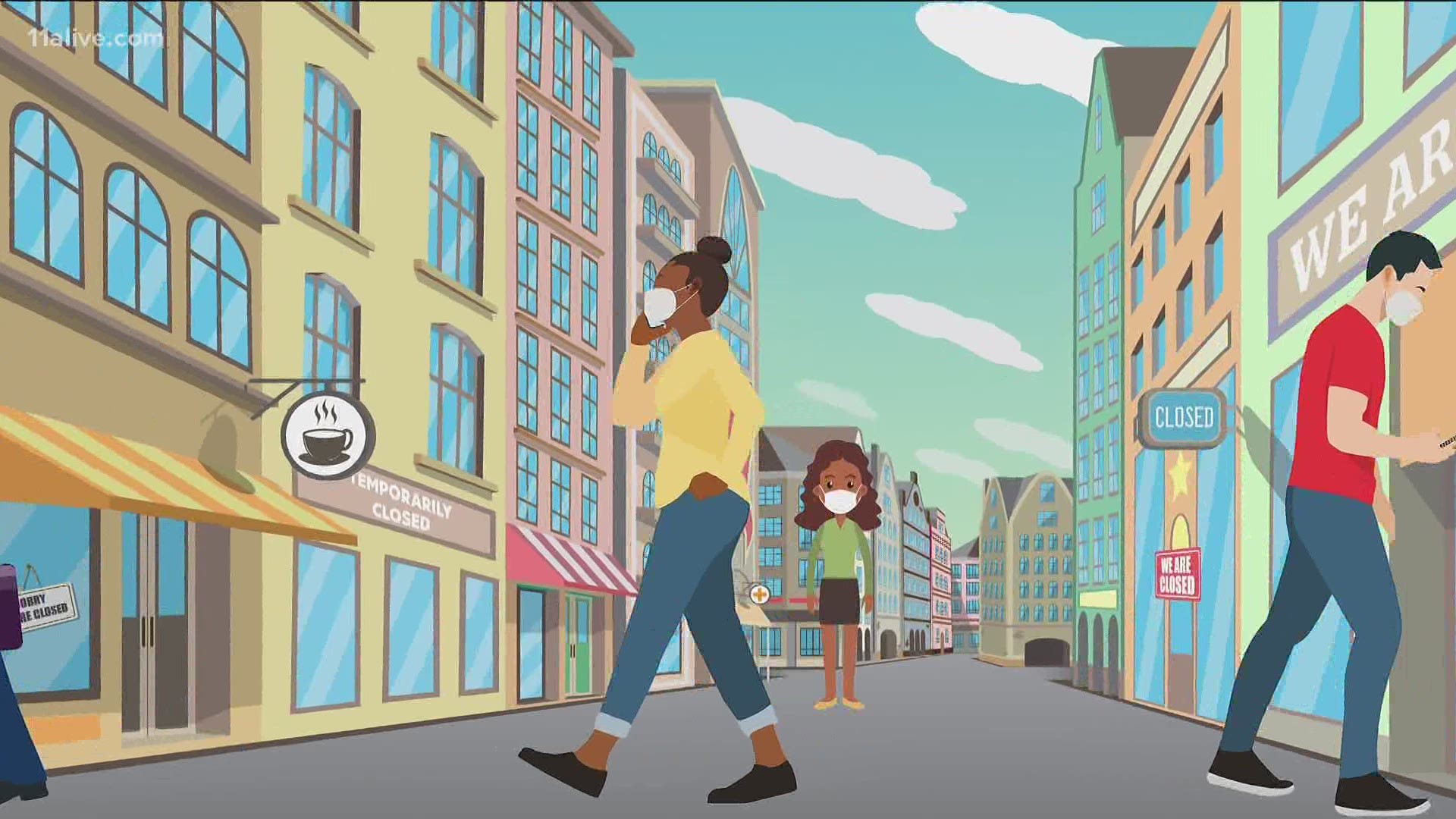ATLANTA — Scientists are still exploring many aspects of the coronavirus, including the people who experience delayed symptoms.
There are cases of people who never feel symptoms of COVID-19. Others begin feeling sick anywhere from two to fourteen days after exposure.
Dr. Mark Tompkins from the University of Georgia’s Center for Vaccines and Immunology said there are many possible reasons for delayed symptoms.
“What we’ve learned in the past year has been really enormous,” he said.
One possibility is that the battle between the virus and your immune system can take as long as two weeks.
“It could be the immune system holds the virus at bay,” said Tompkins. “If it keeps going on, maybe the virus is starting to win so it’s increasing, and it causes damage.”
Or, your immune system has to work so hard that after two weeks it’s inflamed and that’s what makes you feel bad.
There are strains of coronavirus other than the one that causes COVID-19. Previous exposure to one of those other strains could help someone ward off symptoms.
“They may have T-cells that cross react and can protect to a certain degree against the COVID causing coronavirus,” said Tompkins.
There are other possible reasons that symptoms don’t appear for weeks or days after exposure.
“It could be level of exposure and the route of exposure that lead to different clinical outcomes,” said Tompkins.
There could also be genetic reasons why one person feels sick after a couple of days, another a couple of weeks, and some not at all.

